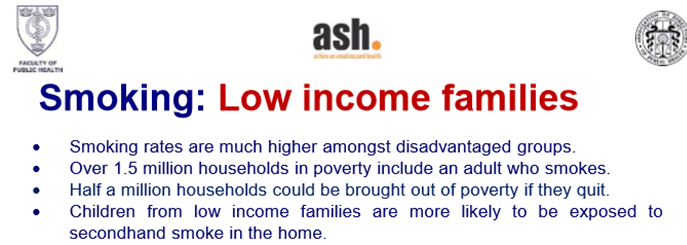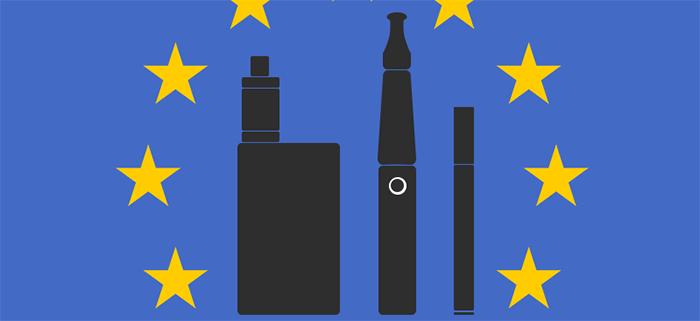Psychologists Call For Less Regulation and No Tax on Vape Gear
The British Psychological Society has thrown its weight behind vaping and in a big way.
I’ll get into their superb explanation of why smoking cigarettes is so addictive and therefore quitting is so hard in a moment – and it isn’t just the nicotine.
 In the report, Changing Behaviour – Electronic Cigarettes, they make a number of recommendations that is has to be said are on par with a lot of vape advocacy groups out there.
In the report, Changing Behaviour – Electronic Cigarettes, they make a number of recommendations that is has to be said are on par with a lot of vape advocacy groups out there.
So let’s break down what the BPS is recommending and I have to say I concur with pretty much all of it…
Improve Education
Something regular readers of my stuff will recognize as I’m forever saying ‘education NOT legislation’.
In other words instead of Governments around the world rushing to bring out laws stopping people from smoking and vaping – they should educate them instead on both the benefits and harms of both.
Let the people decide by informing them of the true facts and stop nannying us!
Given this report was written in the summer [released this week] and before the recent use of e-cigs in the UK Gov’s Stoptober campaign the BPS are bang on point saying:
Use public messaging campaigns to disseminate correct evidence-based information about the harms of smoking/reduced health risk of e-cigarettes and the potential benefit of e-cigarettes for smoking cessation.
More Emphasis on E-Cigs at Stop Smoking Clinics
I recently wrote about the alarming drop in smokers looking to quit attending the NHS Stop Smoking Clinics and once again the BPS has its finger on the pulse.
At the moment the clinics barely mention e-cigs and vaping with maybe a cursory nod to their success.
However the BPS believes if the NHS is committed to getting more folks off the cancer sticks then the use of e-cigs as a cessation tool must be not only encouraged but become front and centre in ‘treatment‘.
As I mentioned in the article I highlighted above – maybe the Gov should consider letting vape shop employees work alongside clinic staff or at least offer some kind of training or accreditation to both!
The BPS actually go a step further in calling for the e-cigs to be funded on the NHS – something I’m a little nervous about for many reasons none more so than ‘medicalizing’ them brings in a whole host of red tape:
Combine existing best practice (NHS SSS) with the most popular quitting method (e-cigarettes) to increase attractiveness of the SSS and further boost success rate. Offer e-cigarettes and technical support as part of the SSS and fund the services to support smokers to quit.
No Tax On E-Cigs – Higher Tax For Cigarettes
Whilst I obviously like the idea of no tax on vape products my instinct for raising the tax on analogue cigs is to say no.
My thinking is based on a couple of factors – higher prices don’t seem to curtail smoking and most importantly it’s a tax on the already beleaguered poorer folks.
I’ve read a ton of reports showing that smoking levels remain high in what ‘experts’ call the ‘lowest social groups’.
In other words the poorer you are the more likely you are to smoke and the feeling is why spend cash you can’t afford on a vape kit that ‘might not work’.
Yes I understand the argument they should be on prescription for those that cannot afford it – but I can’t agree – 3million of us have managed without that!
Personal responsibility is a nice phrase I’m using more and more as I get older lol.
So I go back to point one and the improvement of education around the benefits of e-cigs as a smoking cessation tool.
High taxes on a packet of fags or baccy hasn’t worked it’s just a punishment for the poorer in our society and the only benefit is to the balance of the Government coffers.
So reducing or removing tax from even just starter kits may make them more cost attractive to the so called ‘smoking poor’.
The BPS says:
Continue to increase taxes, smoke-free regulation and purchasing barriers for cigarettes but regulate the reduced risk product less heavily. For e-cigarettes, avoid taxation and ‘vape-free’ legislation and promote unrestricted advertising of factual information.
Proper Regulation on Vape Products and Higher Nicotine Strengths
If the TPD has strangled the vape movement in Europe the TRPR here in the UK has pretty much choked the life out of it.
Jobs and lives are being lost as tough regulations mean vapers are buying online from China and the US to avoid silly EU rules – which in turn means UK businesses are closing and livelihoods are lost.
And given there’s such tough regulation round vaping which is backed by an anti-vape media – smokers considering trying e-cigs to quit are tending to shy away believing vaping is as bad if not worse than smoking.
The BPS is calling for ‘proper’ regulation on vape manufacturers and developers removing the unnecessary red tape that ties their hands so allowing them to improve the devices and e-liquids.
Speaking of e-liquids they are also calling for higher strength nicotine to be re-introduced to the market.
Under the TPD the max you can get is 20mg – which in all honesty is pretty dam strong – but hey I’m all about choice!
The BPS report says:
…allow e-cigarettes to further evolve and improve so they are safer, more appealing and satisfying for more smokers. This means allowing higher nicotine strength e-liquid to remain on the market where there is no evidence to suggest harm, and avoid unnecessary burdensome and costly procedures for manufacturers so they can focus on improving the safety and efficacy of their products.
Invest in Research
Given I seem to spend an inordinate amount of time deciphering ‘science speak’ styled vaping research and study papers – I sometimes feel like saying ‘no more!’.
However I do believe more research is required so long as it is honest – transparent and unbiased which given Big Pharma and Big Tobacco has its greedy and yellowing fingers in most pies that’s difficult.
However I tip my hat to the BPS who say:
…to continue to explore the effects of e-cigarettes on smoking cessation to determine which devices offer the best potential for quitting, for whom and under what circumstances.
Not Just the Nicotine that Makes it Hard to Quit
The BPS has an obvious insight into the other reasons we smoke and as the title suggest whilst nicotine addiction plays a big part there’s other factors too.
They say that whilst Nicotine Replacement Therapies [NRTs] address the nic factor there’s other issues to take into account such as what we as reviewers refer to a lot as the ‘throat hit’ among many others.
For instance during times of stress I can still yearn a cigarette and whilst vaping on CBD oil during a particular stressful PTSD flare up I found the learned behaviour and muscle memory associated with smoking passed into the vape pen I used.
I was a smoker of roll-ups and I kind of enjoyed the whole rolling ritual which has now transferred to coiling – wicking and filling.
Given I enjoy a throat hit and a high nicotine dose in the morning in particular – I still MTL vape every day and get the exact same sensation smoking used to give me.
So NRTs whilst successful for some they are not for the many – whereas vaping could be and for all the factors I’ve mentioned.
The BPS says:
Smoking is a behaviour influenced by a wide range of factors including nicotine addiction and psychological factors such as expectancies, beliefs, drives, motives and impulses as well as sensory components and aspects of the behaviour itself (e.g. holding the cigarette, feeling the smoke in themouth and throat, or to facilitate social interaction).
Cigarette smoking delivers a high level of nicotine to the brain very quickly (10–20 sec), an effect which immediately activates the brain chemical, dopamine.Because other stimuli [e.g. the handling of the cigarette, the ‘catch’ of smoke in the throat] are associated with this effect of nicotine, they too can become pleasurable in their own right, contributing to smoking addiction.
The BPS also point to a study that showed more folks quit successfully with e-cigs than over the counter NRTs:
Compared to the wealth of evidence for NRT on smoking cessation, very few studies have explored the effectiveness of e-cigarettes for quitting although emerging reports are generally encouraging.
A 2016 report estimated that 2.5 per cent of smokers who used an e-cigarette in their quit attempt(22,000 people) succeeded where they would have failed if they had used nothing or a licensed nicotine product purchased over the counter.
Summing Up
This is a superb report from a valid source that not only tackles the issues around nicotine addiction – but adds that other extremely important layer of the behaviour of smokers and smoking.
I’m no scientist but as I tried to explain my rituals – muscle memories and the whole sensory aspect around smoking has been replaced by vaping – simple as that.

Patches – gums and sprays didn’t do that and little wonder given Big Pharma has known they don’t work for decades.
The British Psychological Society is a group that knows what it’s on about and to come out with this report is brilliant for the vaping community and more so for those looking to quit the cancer sticks.
They sum up the e-cigs vs smoking debate beautifully:
In order for e-cigarettes to be more effective in facilitating transition to non-smoker status they need to address the psychological as well as the biological factors associated with smoking addiction.
Drawing on the COM-B model of behaviour change these include capabilities (easier to use), opportunities (more available) and motivation (more appealing). Correctly and appropriately informing the general population about effects on smoking cessation and relative risks should also impact on motivation to use in a quit attempt.
This has undoubtedly been one of the best reports into the the e-cigarette factor I’ve read and I really hope very many health organizations and indeed Governments around the world take heed.
You can read the full report HERE and I highly recommend you do.









